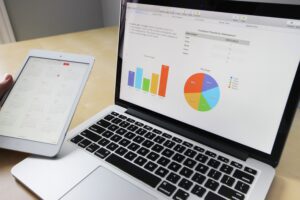By: Derek Melvin
Paying off student loans can be a very daunting task. Not only can the balance of the loans be scary, but understanding the different repayment plans available, the types of loans you have, and even how to communicate with loan servicers can be extremely intimidating. The goal is always going to be, how to pay off student loans as fast and as efficiently possible. With that said, this may look very different for each person depending on their circumstances.
Federal Loan Repayment Options
Before we discuss the basics of debt repayment, I want to briefly talk through federal loans and the opportunity you may have for loan forgiveness.
Depending on the type of student loan, your employer, loan balance, etc., it could make sense to consolidate to a federally qualifying income-based repayment plan to apply for loan forgiveness.
Of course, if your goal is to get your loans forgiven by one of these programs, you will want to make minimum payments indefinitely to pay the least amount possible and have the most forgiven.
In this article, I want to focus more on general loan repayment strategies to have in mind. If you would like to learn more about federal income-based repayment plans and Public Service Loan Forgiveness (PSLF), please visit our article, Is PSLF Worth It, that discusses these considerations to keep in mind.
You can also visit the federal loan servicing department directly at https://studentaid.gov/.
How to pay off debt fast
If you are not going to be pursuing federal loan forgiveness, then it is most likely the case that you are on a standard repayment plan or have refinanced your loans to a private lender with fixed terms. When forgiveness is not available, then we are forced to pay these debts off the old fashion way, which means until the balance is all the way down to $0.
So, if we have these student loans, and most likely other debt like car loans, mortgages, etc., how do we go about prioritizing payments towards these loans so that we pay them off the fastest (and most efficiently)?
Simple rule is this: to pay off debts the fastest, you will first want to rank the loans from highest interest rate to lowest interest rate. Please note that we aren’t just talking about student loans here. Your student loans are a part of your total debt package, therefore; we need to lump in all your debts to be the most efficient with your payments en route to becoming debt free.
Once you have ranked your debts from highest interest rate to lowest, we will want to pay as much as we can towards the highest interest rate loan, while making minimum payments on all the other lower interest rate loans. The balance of the loan does not matter. We want to pay as much as we can towards the highest interest rate debt, because that is the one that is costing you the most in interest.
Let’s do an example here.
We have three separate loans at the following balances, interest rates, and minimum payments each month. I also want to assume that you have a total of $500 per month allocated in your budget to pay on these loans.
- Loan #1: $2,000 @ 5.2%, $100 minimum payment
- Loan #2: $1,500 @ 6.5%, $100 minimum payment
- Loan #3: $5,000 @ 4.7%, $100 minimum payment
In this example, we will want to allocate all excess funds (any discretionary income you have earmarked for additional debt repayment above the minimum), towards Loan #2 while continuing to pay the minimums on all other loans.
Therefore, your payments would be:
- $300 towards Loan #2
- $100 minimum towards Loan #1
- $100 minimum towards Loan #3
This cycle will continue until Loan #2 is paid off. Now after Loan #2 is paid off, what is the next one we attack?
You got it – Loan #1 since it has a higher rate than Loan #3.
Now we can’t just sit back and celebrate once the first loan is paid off and go spend that extra money out on the town or gamble it away on the golf course, we need to be disciplined and continue paying the same amount that you had budgeted each month on your loans until they are all gone.
Your next period of payments once Loan #2 is paid off should look like this with the same $500 budget:
- $400 towards Loan #1
- $100 minimum towards Loan #3
This strategy will be the fastest and most efficient way of getting out of debt.
Do I Invest or Pay Off Debt?
Now that we know the most efficient way to pay off our debts, we also must keep in mind that there are other parts of our financial plan that need attention as well. Specifically, retirement savings and investing. This is where it can become a tough decision on whether we want to use excess dollars in our plan to pay off debt more aggressively or invest for retirement savings.
Debt as an Investment
With that said, we do need to think of your debt itself as an investment, with the interest rate on the debt being the rate of return you receive on those payments. Therefore, if you have a 3% debt and you make a payment towards that debt, your rate of return on that debt is 3%.
Luckily, we do have a rule of thumb in place to help you when making this analysis of whether to invest or pay off debts.
Our rule is called the “7% Rule”. The 7% rule states that if we have any debts that are over 7%, we need to be as aggressive as possible in paying off those debts. With debts that are lower than 7%, depending on your financial situation, it may be more advantageous to pay the minimum payments on these debts and use excess funds elsewhere in your plan, like investing for retirement.
So where does this “7% Rule” come from?
7% is a conservative estimate of annualized returns for a globally diversified portfolio primarily invested in stocks. For younger investors with quite a long-term time horizon before retirement (10+ years), this is the retirement portfolio we would expect to be appropriate for your situation. Therefore, if we are paying on a debt that is lower than 7%, we think you may be able to obtain a higher return over time by investing those dollars as opposed to paying up on lower interest rate debt.
This is especially true when we are in that lower 0% – 4% interest rate debt zone. If we have a debt that is in this range, in most cases, we prefer to make minimum payments for the life of the loan and use excess dollars in your budget for investing for retirement as opposed to being overly aggressive in paying off these debts. Over the long term, you can expect to receive a greater return by investing these dollars, depending on your portfolio allocation, investment time horizon, and investment risk.
These considerations are absolutely case-by-case and are not black and white for any single individual. This is where having a professional that understands your full financial plan can be extremely beneficial when making these decisions. If you would like to speak with one of our financial advisors at the Finity Group to discuss any of these questions about your financial plan, please reach out to us and we would be happy to set up an initial conversation.
Have a Plan!
We know student loan repayment can be extremely intimidating. The most important item to have when it comes to paying these off is a plan. Whether you are pursuing federal forgiveness, game planning how to pay off the loans as fast as possible, or deciding how much of your income should go to loans versus retirement savings, it is essential to have a plan in place that you are confident in and that you can stick to.
I have a saying that holds true for almost all faucets of financial planning, and it goes, “People don’t plan to fail, they fail to plan”. This especially holds true in this situation since loan repayment is such a huge aspect of many individuals’ financial situation.
As mentioned, if you would like to speak with one of our advisors, we would be happy to get in contact and discuss these items on an individualized basis.
Related Blog Posts
- Is PSLF Worth It?
- Should I Refinance My Student Loans?
- Getting Out of Debt
- How to Qualify for Public Service Loan Forgiveness
- How Much Student Loan Debt is Too Much?
- Retirement Plans for Doctors
- Announcement: One-Time Payment Adjustment for PSLF
- 23 Financial Goals for 2023
Related Podcast Episodes on Financial Clarity for Doctors
- Student Loan Management for Doctors
- Debt vs. Investment – What Should You Do First?
- PSLF: What Doctors Need to Know



